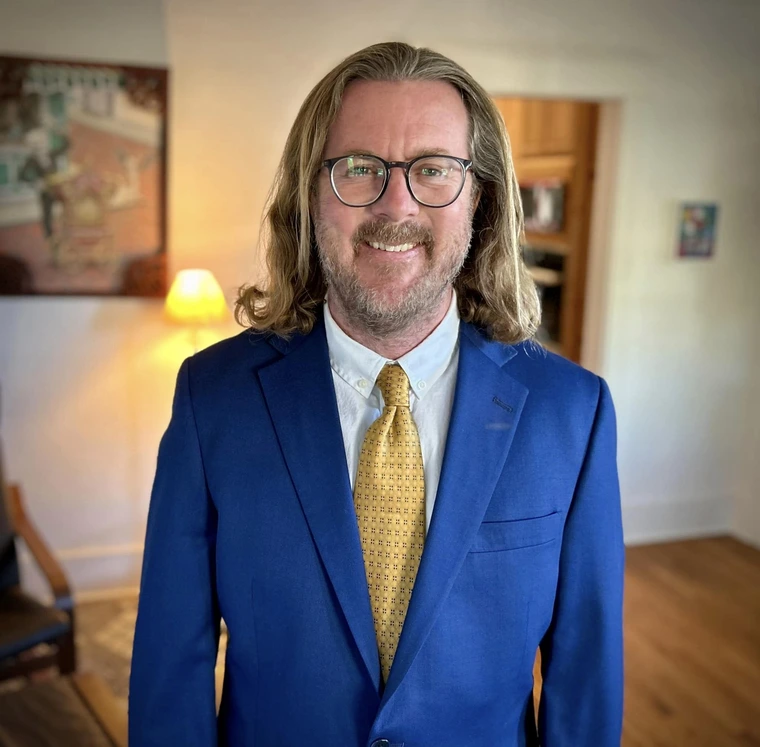Stacey Cochran

Modern Languages 372
Stacey Cochran is a career-track assistant professor of English at the University of Arizona and serves as Coordinator of Student Success and Wellness for the College of Social and Behavioral Sciences. In his role as coordinator, Stacey is researching the effectiveness of a student-centered college writing curriculum situated in wellness. He is particularly interested in the intersection of writing pedagogy and students' emotional well-being, approaching the construct of well-being from a scientific humanist's perspective. He is especially interested in writing policies and practices that increase students' positive emotions, engagement, inter- and intra-personal strengths, and capacities for finding meaning and purpose in life.
Stacey's novels include the award-winning, bestselling Eddie & Sunny (optioned for film by Gunnison Galaxy LLC), The Loneliest, Claws, and The Colorado Sequence. In November 2018, Paradox Studios optioned the screenplay of Eddie & Sunny co-written by Stacey and director Desmond Devenish.
Stacey is co-author of Macmillan Learning's 1st Edition of the Year (2016) An Insider's Guide to Academic Writing published by Bedford/St. Martin's Press. He was a finalist for the 1998 Dell Magazines Award for Fiction, a finalist for the 2004 St. Martin's Press/PWA Best First PI Novel Award, a finalist for the 2011 James Hurst Prize for Fiction, and in 2015 one of the first ten novelists acquired by Amazon Publishing's Kindle Scout | Kindle Press.
Stacey is represented by Allan Guthrie at The North Literary Agency.
Stacey has been an invited guest speaker at universities, conferences, and writers' organizations for more than a decade. One of the most "downloaded" fiction writers between 2005 and 2011, Cochran has established a global readership by pushing against norms, embracing new technologies, and by creating opportunities for countless writers around the world.
Equally comfortable in front of and behind the camera, Cochran has interviewed hundreds of writers, leading intellectuals, and scholars across a diverse range of academic, civic, and professional domains. He welcomes invitations to discuss writing and well-being, transforming writing programs through diversity and inclusion, and writing for personal growth via his email.

